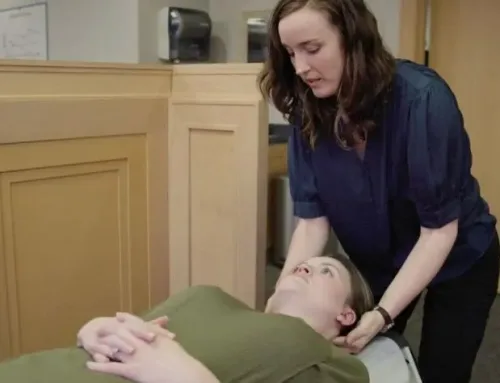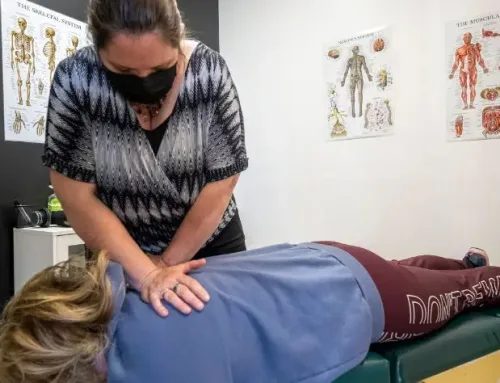Best Integrative Medicine Programs in the U.S. for 2025

The best integrative medicine programs in the U.S. bring together clinical training, whole-person care, and evidence-based practice in ways that reflect where healthcare is going. These programs focus on treating individuals as complex, interconnected systems, blending biomedical science with nutrition, lifestyle, and mind-body approaches.
As demand grows for providers who can think across disciplines and lead within evolving healthcare models, more professionals are turning to integrative medicine for its depth, flexibility, and clinical relevance. Whether you’re in the early stages of your career or looking to expand your scope, understanding what defines strong integrative programs can help you choose a path aligned with your values and long-term goals.
Understanding Integrative Medicine: A Growing Force in Healthcare
Integrative medicine brings together the strengths of conventional medicine with evidence-informed holistic approaches. It includes nutrition, acupuncture, mind-body techniques, lifestyle medicine, chiropractic, and other therapies that support the body’s natural capacity to heal. The goal is to prevent illness, promote wellness, and empower patients to take an active role in their care.
This model of care focuses on the whole person, considering physical, emotional, mental, and social health as interconnected. It’s deeply rooted in clinical science while also drawing from global traditions and modern innovations. As a result, integrative medicine is expanding rapidly across hospitals, academic centers, and private practice.
A New Kind of Healthcare Professional
To meet this shift, universities and training centers across the country are creating integrative medicine programs designed to help you think bigger, treat more deeply, and create meaningful change in the way health is understood and delivered.
Students in these programs learn to blend clinical science with whole-person care strategies, gaining the tools to serve a wide range of patients with insight and flexibility. Whether the goal is to lead a wellness center, shape public health programs, or offer more personalized care in clinical settings, integrative training opens up real possibilities.
Top 5 Integrative Medicine Programs in the U.S.
1. Southern California University of Health Sciences (SCUHS)
At Southern California University of Health Sciences (SCUHS), we believe the future of healthcare belongs to professionals who understand the full spectrum of healing: biomedical science, holistic practices, and the human experience at its core. That’s why our integrative doctoral programs are built to empower change-makers, clinicians, and system-level thinkers with the tools they need to lead with purpose and skill. Our curriculum emphasizes whole-person care, interprofessional collaboration, and real-world application across a variety of disciplines.
We offer a range of integrative health doctorate programs, including:
- Doctor of Whole Health Leadership (DrWHL)
Developed in partnership with the architects of the VA’s Whole Health model, this seven-term, hybrid program prepares healthcare professionals to lead transformative change. The curriculum blends leadership, systems thinking, and whole health models, while also encouraging deep personal exploration and development. - Doctor of Acupuncture and Chinese Herbal Medicine
ACAHM-accredited and one of the first entry-level doctorates of its kind, this program integrates traditional East Asian medicine with Western biomedical foundations. With multiple entry points and flexible formats—including part-time blended learning—this program is built to support students at various stages of their academic and clinical journey. - Doctor of Chiropractic
Our chiropractic program blends a century of experience with a future-forward approach. The full-time, hybrid structure includes hands-on clinical training and options to specialize in areas like Sports Medicine. Bachelor’s completion is built into the program for those entering with undergraduate credits.
Our programs are designed to meet you where you are—professionally, academically, and personally—and help you move forward with clarity and deep clinical insight. Whether you’re ready to lead in healthcare reform, expand your practice, or contribute to the next generation of integrative care, we offer the foundation to help you get there.
2. University of Arizona – Andrew Weil Center for Integrative Medicine
Known internationally for its contributions to integrative health, the Andrew Weil Center offers a Fellowship in Integrative Medicine—a program widely respected for its clinical depth and focus on lifestyle medicine. While not degree-granting, the fellowship is popular among physicians, nurses, and advanced practitioners looking to incorporate integrative approaches into clinical care. Topics include mind-body integration, nutrition, and health behavior change.
3. Georgetown University – Master’s in Complementary and Alternative Medicine
Georgetown’s online CAM master’s program is a well-structured academic path for professionals interested in evidence-based integrative approaches. The curriculum includes courses in botanical medicine, health literacy, and ethics, making it a good fit for clinicians, healthcare administrators, and educators aiming to understand and integrate alternative modalities within conventional systems.
4. Bastyr University – Seattle, WA
Bastyr remains one of the most well-established names in natural medicine education. With degrees in naturopathy (ND), acupuncture, nutrition, and integrative wellness, the university is known for its hands-on clinical training and its emphasis on plant-based therapies, mind-body healing, and holistic diagnosis.
5. Maryland University of Integrative Health (MUIH)
MUIH offers a wide array of master’s and doctoral programs in fields like health coaching, herbal medicine, nutrition, and acupuncture. With a strong focus on cultural sensitivity and whole-person healing, the university’s programs are delivered in flexible formats, including online and hybrid models.
What Makes a Great Integrative Medicine Program?
Integrative medicine is a philosophy of care that takes into account the full complexity of human health. For students considering this path, choosing the right program is a big decision. A strong integrative medicine cultivates a mindset rooted in systems thinking, patient-centered care, and practical application.
Look for programs that offer:
- Interdisciplinary education – a curriculum that integrates Eastern and Western approaches
- Accredited clinical training – especially for acupuncture, chiropractic, or naturopathic care
- Systems-level thinking – coursework in leadership, health policy, or organizational change
- Flexible formats – including hybrid or part-time options for working professionals
- Faculty with cross-disciplinary expertise – instructors who bridge clinical, academic, and policy domains
- Capstone or project-based learning – real-world application of theory and practice
- Bonus features – options like transfer credit pathways, dual degrees, or fixed tuition plans
Beyond curriculum and content, strong programs are designed to fit the lives of today’s students. Flexibility matters. Look for programs that accommodate full-time work, offer multiple start dates, or allow you to build your degree around your existing credentials. These structures make it possible to advance your education without stepping away from your professional responsibilities.
The most impactful programs also help you think bigger about your role in health systems, your capacity to lead, and how you can contribute to a more integrative model of care at scale.
Career Paths in Integrative Medicine: Beyond Private Practice
Integrative medicine continues to evolve, and so do the career options available to those trained in this growing field. While many practitioners do choose clinical paths—like acupuncture or chiropractic in private practice—there’s a wide range of roles opening up in healthcare systems, education, policy, and community health.
These roles are grounded in a whole-person model of care and reflect the increasing demand for leaders who can think across disciplines. As health systems shift toward prevention, personalization, and patient empowerment, integrative medicine professionals are stepping into roles with real impact, well beyond the walls of a clinic.
Where Graduates Are Making an Impact
With the right training and credentials, integrative medicine professionals are finding opportunities across sectors. These roles blend clinical insight with leadership, education, and systems thinking.
Career paths include:
- Health system transformation leaders
- Clinical directors or community health innovators
- Lifestyle medicine educators or policy advisors
- Acupuncturists and chiropractors in hospitals, wellness centers, or collaborative practices
- Professors and researchers in integrative medicine or related disciplines
- Professionals in public health, VA systems, NGOs, or corporate wellness initiatives
These positions are often interdisciplinary, collaborative, and tied to initiatives that focus on improving access, equity, and patient experience.
Building a Career with Range and Purpose
Integrative medicine programs prepare students to lead in spaces where healthcare is changing, from local communities to national health policy. Whether you’re interested in teaching, advocacy, or systems-level strategy, this field offers real opportunities to influence how care is delivered and experienced.
A solid academic foundation opens doors, but it’s the ability to think holistically and act strategically that sets graduates apart. That mindset is what health systems are looking for as they evolve toward more inclusive, sustainable, and person-centered models of care.
SCUHS—Invest in Your Future with Purpose
For professionals looking to grow in integrative medicine, the choice of where to study matters. The success lies in finding a program that fits your goals, respects your time, and supports your long-term success. At SCUHS, we’ve built our programs around that understanding.
Whether you’re drawn to acupuncture, chiropractic, or whole health leadership, our integrative doctoral programs are designed for those who want to practice at a higher level and contribute to a more inclusive, connected model of care. With a curriculum rooted in whole-person health and systems thinking, our programs are academically rigorous, clinically relevant, and aligned with where healthcare is heading.
Stability, Support, and Flexibility
When you pursue graduate education, financial clarity matters. At SCUHS, we offer a Fixed-Rate Tuition Guarantee—meaning no surprise hikes, no shifting fees, and a clear plan from start to finish. You’ll know exactly what your investment looks like from day one.
We also provide scholarship opportunities and access to federal financial aid, because we believe advancing your education should be financially feasible, especially for professionals already working in the field.
Add to that our flexible formats—designed to fit into real lives—and you get more than just access to a degree. You gain a path you can actually follow without stepping away from your life, your practice, or your purpose.
Your Next Step in Integrative Health
Choosing the right program means finding one that aligns with your goals, supports your growth, and respects your time and resources. At SCUHS, we offer integrative doctoral degrees designed for professionals who are ready to deepen their impact—without putting their lives on hold. With flexible learning formats, a fixed tuition guarantee, and dedicated support, we make it possible to move forward with clarity and purpose.
If you’re looking for a path that supports both your professional evolution and personal values, we invite you to explore our programs. Explore all our programs or reach out to request more information. We’re here to help you take the next step.
FAQs
What should I look for in the best integrative medicine programs?
Look for programs that offer a strong clinical foundation, interdisciplinary curriculum, and flexible learning options. Accreditation, experienced faculty, and real-world application through capstone or leadership projects also matter. Programs that combine Eastern and Western modalities while encouraging systems-level thinking tend to stand out.
Can I study integrative medicine while working full-time?
Yes—many integrative medicine programs are designed for working professionals. Look for hybrid or part-time formats with online coursework and flexible scheduling. Managing your time well is key, but it’s definitely possible to continue working while advancing your education.
Do I need a clinical background to pursue a degree in integrative medicine?
Not always. Some programs are designed for licensed healthcare professionals, while others are open to individuals with a strong interest in health, wellness, and systems change. It depends on the degree type, doctoral programs often require prior experience in health care or related fields.
Is financial aid available for SCUHS programs?
Yes. We offer access to federal financial aid and a variety of scholarship opportunities. Our admissions team can walk you through the options and help you explore what kind of support might be available based on your goals and background.
How does SCUHS support work-life balance for students?
Our programs are built with flexibility in mind. We offer hybrid and blended formats so you can balance your education with professional and personal responsibilities. Many of our students are working adults, so we structure courses to support that reality.
Related Posts




